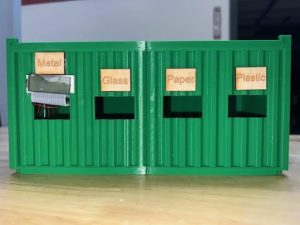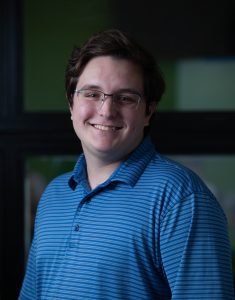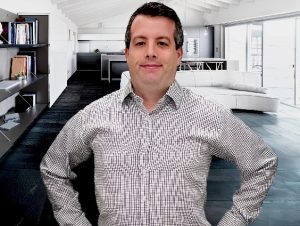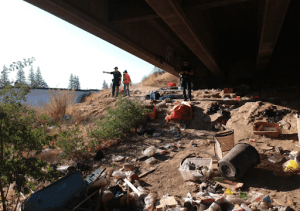 Sierra College Entrepreneurship Pathway
Sierra College Entrepreneurship Pathway
The second annual Circular Economy Innovation Competition is underway, and Sierra College entrepreneurship students have launched ahead with cleaner, greener business pitches.
“Oftentimes, innovation happens at the local, entrepreneurial level,” says industry partner Emily Hoffman, Public Information Officer at the Western Placer Waste Management Authority (WPWMA). “Our local community college is a great way for students to get more education and address problems in a hands-on way.
“I think that’s a real positive for workforce development in our region.”
The WPWMA and Sacramento State’s Carlsen Center for Innovation and Entrepreneurship co-produce the competition, awarding serious seed money to ideas likely to make a difference. One contestant, Sierra College student Jeff Serpa says, “I thought this was a really good opportunity to branch out, network with people, and try to get a business idea out there.”
Serpa teamed up with CNC-machinist classmate Christiaan Myburgh to propose the “Clean and Go” mobile redemption center, helping to clean up homeless encampments while incentivizing recycling. According to the team’s project video, the unhoused population in Roseville accumulated more than 187 tons of trash in 2021 alone. The mobile redemption center stepped in to “trade cash for trash,” putting money in unhoused people’s pockets while keeping the environment clean.
Serpa is thrilled to say, “I just got an email today saying we moved on to the next stage and are finalists in the competition.”

Meanwhile, a third Sierra College student, Peter Gui, is pitching an “Eco Builders” project, seeking to recycle plastics for building materials. Gui and his team also made it to the finals, putting Sierra College students on two of the eight final teams.
The original ideas came from team projects in Sierra College’s Invention and Inclusive Innovation (i3) pilot program, a learning cohort that took hands-on CTE classes every Friday for 16 weeks. The curriculum was based on three existing classes developed with the help of Strong Workforce funding: two business courses, Social Entrepreneurship and The New World of Work, paired with a building industries class, Rapid Prototyping. This past semester, students focused on green entrepreneurial projects, took a tour of WPWMA’s facilities, and used recycled materials from the authority to prototype ideas.
“The i3 program at Sierra gave students from every conceivable background and experience the opportunity to develop skills not just for their education, but also for their lives,” says Business Professor Denise Bushnell. “We were the only community college to use the existing curriculum and package it into a learning community and cohort team-taught model.”
The interdisciplinary program attracted welding, advanced manufacturing, business, and even environmental studies students. Classes are also stackable toward the non-credit Entrepreneurship for Makers Skills Certificate and the for-credit Interdisciplinary Entrepreneurship Skills Certificate or Certificate of Achievement.
“We created a non-credit and a for-credit option because we have students who struggle to afford classes,” says Bushnell, proud to make entrepreneurship courses accessible to underrepresented students. “That’s what CTE is all about, giving students the skills to earn high-wage, high-demand jobs, and life skills to keep them moving forward and taking care of their families.”
Serpa couldn’t agree more and says his creativity blossomed in the program: “Professor Denise Bushnell was always giving us great ideas for how to move forward with our business ideas,” gushes the grateful student. Originally, Serpa discovered the Sierra College classes while earning a library information technology degree from nearby Sacramento City College. Now, his business skills and connections have taken off.
“I got to meet all of these people who were interested in entrepreneurship,” says the student. His favorite part of the i3 program was the hands-on learning in the Sierra College Makerspace, a living lab for student creativity built with Strong Workforce support. The makerspace’s 3D printers helped Serpa prototype business ideas, including an electricity-generating windmill. Serpa says, “The i3 program at Sierra College was really great for entrepreneurs, and it was probably one of the most fun classes I’ve ever taken.”
The Sierra College teams will present to the judges on Earth Day for a chance to win the grand prize: $20,000 from the authority to seed their idea and the opportunity to pilot their project on Waste Management’s site. But even if they don’t win, the experience will remain well worth it.
“Just by being semifinalists in the process, they got the opportunity to receive business mentorship from the Carlsen Center,” says Hoffman, which helped the Sierra College teams refine their concepts and pitches, launching them into the finals. “The center is really great at convening leaders to set our local entrepreneurs and students up for success.”
Serpa is extremely grateful for the chance to hone his business skills. “I wouldn’t even have known about the competition without Professor D,” says Serpa. “She’s super passionate about entrepreneurship, and that rubs off on her students.”

Moving forward, the i3 program will be integrated into the regular business and entrepreneurship pathway. Plans also include a new student club to continue the cohort learning community benefits. Meanwhile, high school students can get a head start in entrepreneurship with unique dual enrollment opportunities to earn six units of college credit toward the Entrepreneurship and Innovation Skills Certificate. The latest cohort of dual enrollment students will be eligible to apply to the department’s microgrant program this summer to launch their business ideas.
“Students can achieve a skills certificate in three semesters, all while developing and launching a viable business and hopefully earning money that can aid in paying for additional education,” says Bushnell. “A lot of these participants are at-risk students from diverse backgrounds.”
Next year, students can participate through a distinctive Umoja DE cohort at Center High School, according to Nigel Haikins-Appiah, Program Director of Dual Enrollment. He says, “It is open to all students, but we are specifically targeting Black and African American students because research shows that they face unique barriers to entry in entrepreneurship spaces.”
Entrepreneurship dual enrollment pathways have been an area of focus and student interest for a long time. The dean says it is thanks in part to Strong Workforce support that the college can equip students with these high-demand skills.
“We are in a fortunate position to use Strong Workforce funds to fill the need for some high schools by giving or loaning them the needed equipment to run those classes and give students these opportunities,” says Haikins-Appiah. He says the funding also helps increase outreach to disproportionately impacted and underrepresented student groups, changing lives and leading to increased economic opportunity.
As Haikins-Appiah says, “The entrepreneurship pathway and the Strong Workforce movement represent a renaissance in higher education.”
According to Sierra’s industry partner, igniting the minds of young entrepreneurs and expanding their options is timely and in demand.
Says Hoffman, “Knowing that we have students who are eager to make an impact solving some of these issues, personally, that leaves me very hopeful for the future.”
April 2024